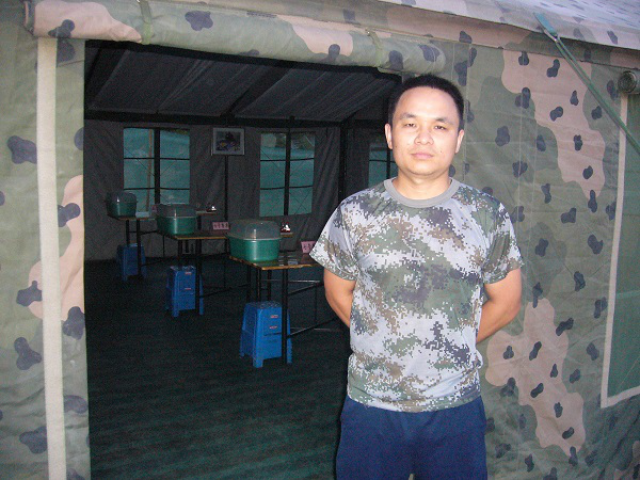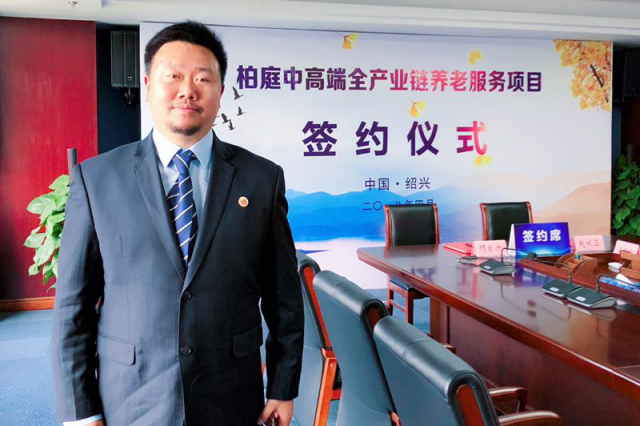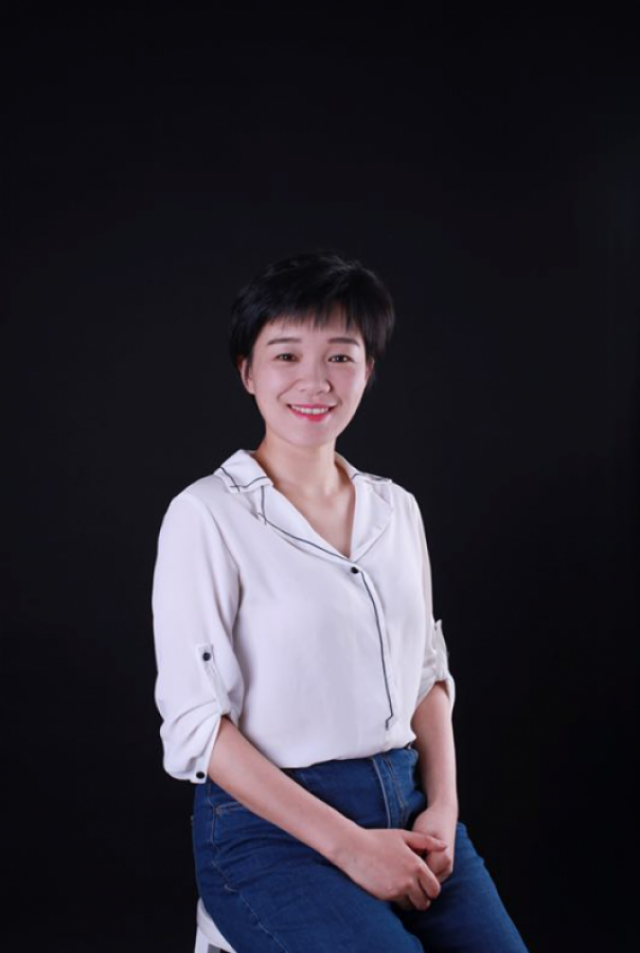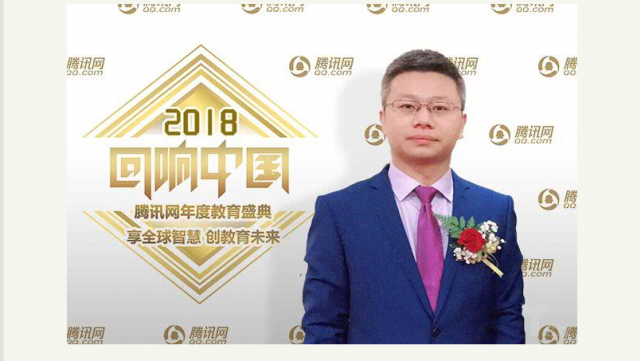Date:2020-06-28 Click:
Website:wyxy.jxufe.edu.cn/news-list-english.html
I. Overview
The School of Foreign Languages originated from the Department of Basic Courses. Then, it was in the year 2000 that the school was founded on the basis of its predecessor, the Department of Business English affiliated with the School of International Trade and Economics. It was not only tasked with the teaching of public English at all levels, but also undertook the development of professional foreign languages. The school consists of four departments (Department of Business English, Department of Asian-European Languages, Department of College English Teaching(I), and Department of College English Teaching(II)) and one research institute (Research Institute for Translation).
II. Faculty
The school has a faculty pool of 126, with 114 full-time lecturers, including 6 professors, 31 associate professors, 27 master supervisors, 17 teachers with doctorates (including 5 overseas returnees), 1 young and middle-aged academic leader of higher education institutions in Jiangxi province, and 2 young and middle-aged academic leaders of Jiangxi University of Finance and Economics.
III. Programs and Talent Cultivation
1. Programs
Bachelor’s Programs
Business English
Japanese
English Language and Literature
Foreign Linguistics and Applied Linguistics
Translation and Interpreting (professional degree)
2. Introduction of Bachelor’s Programs
Bachelor of Business English
Talent Cultivation Goals: The program aims to cultivate versatile and applied talents who have a solid foundation of English, broad international vision, and high humanistic quality, grasp the basic theories and knowledge of English language and literature, economics, management, and law (international business law), are familiar with the general rules and practices of international business, possess strong abilities in the application of English, business practices, cross-cultural communication, critical thinking, and innovation, and are able to engage in international business, foreign-related industry management, and other related work.
Talent Cultivation Features: The school improves the business knowledge and skills of students majoring in business English by incorporating the advantages of the disciplines of finance and economics and also encourages students to minor in economics and management in order to strengthen their study and practice of business knowledge. As a result, teachers can not only teach English, but also teach business.
Length of Schooling and Awarding of Degrees: The standard length of schooling is four years, with a flexible learning period of 3-6 years. Those who meet the degree requirements shall be awarded a bachelor's degree in arts.
Core Courses: Integrated Business English, Listening and Speaking of Business English, Speaking of Business English, Business English Translation, Business English Interpreting, Reading of Business English News Publications, International Marketing (Bilingual), International Trade Practice (Bilingual), Cambridge Business English (Advanced), Business Communication (English), English Speech and Debate, Basic Economics (English), Basic Management (English), International Business Negotiation (Bilingual), etc.
Bachelor of Japanese
Talent Cultivation Goals: In line with the guiding thought of solid foundation and broad employment, this program focuses on training students' ability to use the Japanese language. The school guides students to master good language learning and research methods, so that they can skillfully use Japanese to engage in translation, business, teaching, management, research, and other work in the departments of foreign affairs, economy and trade, education, culture, science and technology, etc. At the same time, it pays attention to improving the comprehensive quality of students, including widening their scope of knowledge and strengthening their social practice ability, so they can integrate into society faster and become much needed versatile talents.
Talent Cultivation Features: This program carries out the international cooperative education mode. The school has established friendly partnerships with Okayama Shouka University, Ritsumeikan University, Gifu Keizai University, Sophia University, and Musashino University, sending an average of 7-10 students to study in Japan every year. There are not only 3 + 1 and 2 + 2 undergraduate cooperative education projects, but also the postgraduate project of 3.5 + 0.5. Through the international cooperative education mode, the school cultivates students' international vision, enhances their understanding of various cultures, and develops their ability to study, work, and live in the context of globalization, so they can better serve society after graduation.
Length of Schooling and Awarding of Degrees: The standard length of schooling is four years, with a flexible learning period of 3-6 years. Those who meet the degree requirements shall be awarded a bachelor's degree in arts.
Core Courses: Basic Business Japanese, Oral Business Japanese, Listening of Business Japanese, Writing of Business Japanese, Advanced Japanese, Introduction to Japanese Literature, Introduction to Japanese Linguistics, Japanese Economy, Overview of Japan, Reading of Business Japanese News Publications, Japanese Grammar, Business Etiquette, Japanese Bookkeeping, Japanese Translation, Japanese Economic and Trade Interpreting, Advanced Audio-Visual, etc.
3. Introduction of Master’s Programs
Master of English Language and Literature
Talent Cultivation Goals: The program aims to cultivate innovative and high-level talents in foreign languages who have a comprehensive development of morality, intelligence, and physical fitness, systematically master the professional knowledge of English linguistics, literature, and translation and the basic knowledge of foreign trade, possess strong research capability and the ability for the application of foreign languages, and are able to engage in teaching, translation, management, and research in education, foreign trade, publishing, foreign affairs, research institutes, and other departments.
Research Directions: English Culture and Literature, and Translation Theory and Practice. English Culture and Literature mainly examines cultural phenomena, literary works, litterateurs, and literary theories in English-speaking countries, focusing on the interaction between literature and culture. Translation Theory and Practice mainly studies translation theory, linguistic theory, literary translation, and applied translation, focusing on applying translation theory to practice.
Length of Schooling: The length of schooling for postgraduates is generally three years, with a flexible learning period of 2-4 years.
Master of Foreign Linguistics and Applied Linguistics
Talent Cultivation Goals: The program aims to cultivate innovative and high-level talents in foreign languages who have a comprehensive development of morality, intelligence, and physical fitness, systematically master the professional knowledge of English linguistics, literature, and translation and the basic knowledge of foreign trade, possess strong research capability and the ability for the application of foreign languages, and are able to engage in teaching, translation, management, and research in education, foreign trade, publishing, foreign affairs, research institutes, and other departments.
Research Directions: Comparison between English and Chinese, and Business English and Teaching. The direction of Comparison between English and Chinese mainly studies the theory of general linguistics, the differences between the English and Chinese languages and their conversion laws. Business English and Teaching mainly studies the characteristics and laws of cross-cultural communication, business English, and teaching.
Length of Schooling: The length of schooling for postgraduates is generally three years, with a flexible learning period of 2-4 years.
Core Courses: Translation Theory and Practice, Classic Reading of British and American Literature, Comparative Study of English and Chinese, Research Methods and Writing Standards, Cross-Cultural Communication, Applied Linguistics, and Western Translation Theory.
Master of Translation and Interpreting
Talent Cultivation Goals: The program aims to cultivate high-level professionals and applied English translators and interpreters who are honest, law-abiding, and pioneering, have the consciousness of the age and an international vision, master the basic theories and skills of interpretation and translation, are familiar with Chinese and Western culture, and are adaptable to the national economy, science and technology, culture, and social construction and development.
Talent Cultivation Features: The school adopts the training mode of combining classroom teaching with project translation. Translation courses are mainly taught in the way of theoretical study, case study, and project translation while interpreting courses are mainly taught in the way of on-the-spot simulation by means of language laboratory, multimedia classrooms, and other equipment. The school attaches importance to practice, emphasizes the cultivation of practical translation ability and the analysis of translation cases, and requires students to complete at least 150,000 words of translation or at least 400 hours of interpreting during their schooling.
Length of Schooling: The full-time length of schooling is generally 2 years.
Core Courses: Chinese Language and Culture, Introduction to Translation, Translation Theory and Skills, Consecutive Interpreting 1, Applied Translation, Advanced Oral English, and Simultaneous Interpreting 2.
IV. Talent Cultivation Achievements
1. Joint Talent Cultivation Projects
The international exchange project for excellent undergraduates of Lincoln University, the exchange project of Puerto Rico, the 3+0.5+2 (+3) project (directly going to colleges or universities) of Ritsumeikan University, the 3+1 project of Gifu Keizai University (free of charge and offering living allowance), the project of Musashino University for postgraduates and doctoral students, the short-term language study project of Sophia University, and the half-year study project of Kagawa University.
2. Awards
Students of our school won the first prize among undergraduate groups in the National English Contest for College Students in Jiangxi Province for 10 consecutive times, the first and third prizes of the English Public Speaking Contest, the third prize of the English Writing Contest and the third prize of the English Reading Contest of the 2019 FLTRPETIC Cup U-challenge, the first prize of the 8th All China Interpreting Contest (English) in Jiangxi Province, the second prize in the final of the 22nd FLTRPETIC Cup National English Debating Competition in Southern China, and the third prize among the Chinese-English translation groups in the final of the 1st National Contest of Business Translation.
3. Graduate Cultivation
In 2019, more than 20 students won national certificates and awards at or above the provincial level. Among them, Luo Xinpeng won the first prize in the final of the English Public Speaking Contest of the 2019 FLTRPETIC Cup U-challenge and Liu Qingqing won the third prize among the Chinese-English translation groups in the final of the 1st National Contest of Business Translation. By and large, the postgraduate students all have been gainfully employed.
4. Outstanding Alumni

Kuang Lasheng was a major of Business English and graduated from JUFE in 2000. His military-themed work, Meditations on the Syrian War, was published by the People's Publishing House and has attracted great attention from netizens. Stephen Hawking, a famous British physicist, wrote the preface for him.

Yuan Yagang studied Business English at Jiangxi University of Finance and Economics from 1999 to 2003. Because of his excellent trading performance, he was crowned as one of the top ten most charming people of Ningbo real estate in 2009 and 2010 and as the pioneer figure of the Ningbo real estate market in 2011.

Cao Chunmei is the co-founder of Henan Sron Silo Engineering Co., Ltd., Henan Sron Industrial Equipment Co., Ltd., Henan Sailer Silo Technology Center (Limited Partnership), and Zhengzhou Geruiwo Machine Import and Export Co., Ltd.

Cai Zhitao, founder and CEO of Polestar AI, is an influential person in the education industry, a high-level talent in Yinzhou District of Ningbo City, and a leading talent of the Ministry of Industry and Information Technology.
Polestar is an educational technology enterprise focusing on AI + Education and is one of the domestic enterprises that started early and successfully developed an artificial intelligence algorithm engine with completely independent intellectual property rights. It currently serves more than 1,800 schools, including well-known domestic brands Only Group, Zi Xuan Education Group, and so on.
V. Research Institutions
Research Institute for Translation of JUFE
VI. Teaching and Research Achievements
1. “Introducing Medio-translatology”, Translation Project of Chinese Academic Works of the National Social Science Foundation of China, 2019, Xiong Bingjiao
2. “Research on BBC News Discourse”, Project of the National Social Science Foundation of China, 2019, Feng Debing
3. “Research on the Construction of Taxation System under the Rule of Law in China”, Translation Project of Chinese Academic Works of the National Social Science Foundation of China, 2018, Zhang Jianli, Li Chunchang
4 “On Narrative Gap”, Third Prize of the 18th Outstanding Achievement Award in Social Sciences of Jiangxi Province, 2019, Tu Niangen
5. “College English SPOC Curriculum Construction Based on TPACK Framework”, Second Prize of Outstanding Teaching Achievements in Colleges and Universities of the Education Department of Jiangxi Province, 2017, Zhang Shanjun
6. “Multi-interactive Translation Teaching Model and Translation Teaching Materials Centered on the Development of Translation Capabilities”, Second Prize of Outstanding Teaching Achievements in Colleges and Universities of the Education Department of Jiangxi Province, 2017, Zeng Jianping
VII. International Cooperation and Exchange
This school pays attention to the international cooperative education in Japanese teaching and has established friendly partnerships with Okayama Shouka University, Ritsumeikan University, Gifu Kyoritsu University, and Musashino University.